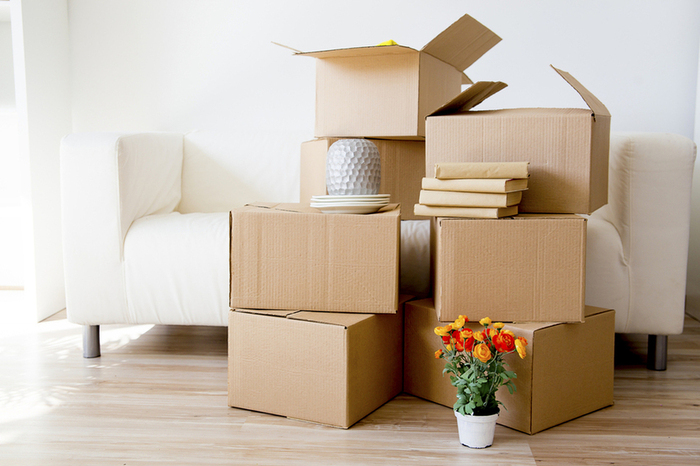Moving from one place to another isn’t something anyone enjoys; it is stressful, time-consuming, and in many cases, expensive. You worry about a hundred things and without organizing your tasks and needs for the move, it can get very messy.
Moving into a new house is an opportunity for you to make positive changes in your life – whether it’s by rearranging your furniture or getting rid of clutter you don’t need, it’s a fresh start! With that in mind, whenever you feel like the stress of moving is getting to you, think about the new and exciting opportunity that awaits you.
With these few tips, you’re guaranteed to have a stress-free moving experience and not break the bank with unneeded moving expenses.
-
Create a to-do list
All the things you need to do before moving can make it overwhelming; creating a to-do list with all your tasks is a great time-management tool to ensure you don’t waste time, forget anything important, and finish everything you need to be done.
You can find multiple checklist apps like Evernote, Tick Tick, or Toggl Plan on the App Store or Google’s Play Store that have features to create lists, keep track of what you’ve done, prioritize tasks, set reminders, and more.
You can start working on this list as soon you’re set on moving; whether it is preparing boxes for donation centers, disconnecting utility services, or labeling boxes, add it to the list.
Staying organized will make moving less stressful and getting multiple tasks done every day will be easier than piling all of your tasks a few days before you move.
-
Get rid of what you don’t need
Moving to a new place is a great chance to get rid of the stereo player you haven’t used in years, those frames you no longer like, or all the clothes you no longer wear.
Use this opportunity to clear some of the clutter in your life and don’t take unnecessary weights to your new home. Not only will the extra boxes add more cost while moving but it’ll also be a headache to unpack later.
There are many ways to get rid of unwanted items like selling things online, hosting a garage or yard sale, or donating them to donation centers. Split your stack into two piles, for selling and donations, and start taking action accordingly.
-
Packing & Labeling
Packing is one of the most stressful things about moving; you may think it’s as easy as throwing things in a box and taping the box up but if you’re not organized and don’t plan packing ahead, you can easily lose things or break fragile items.
Start packing ahead of time, don’t push it to the very last week so you don’t rush yourself and pack one room at a time.
Firstly, you can start gathering free cardboard boxes from recycling centers or local stores or you can just buy moving boxes from Home Depot as well as other moving supplies like bubble wrap, labels, markers, scotch tape, etc.
When you start packing, start categorizing the things you’re keeping, tossing, or donating so you don’t waste time deciding on this as you’re boxing items. Once you have your categories ready, it’s time to box and label.
It is smart to have a labeling system in place so that you don’t have trouble unpacking at your new place and know where everything is. For example, label your boxes per room with kitchen, bathroom, or bedroom and then number the boxes and prepare a sheet to write what every box includes or if that’s too much to do, you can just pack similar items together, like having a shoes box or clothes box for example.
Labeling your boxes would save you a lot of time as well as help you keep track of items to avoid losing anything.
-
Set a moving budget
Moving is expensive and includes many unexpected costs like package insurance, security deposits, travel expenses, and more. Before you make the decision to move, you need to set a budget for moving so you don’t struggle during the process.
One of the biggest things to think about before moving is the moving company expenses if you decide to use their services (more on that below!). With this moving company directory, you can look into various options and ask about cost before making up your mind.
Other expenses to factor into your budget are moving supplies, road tolls and parking fees, mortgage, and gas money. There are many moving calculators online and on the App Store that can help you set your budget.
-
DIY Move or use professional movers
The most important question you need to answer is, are you going to move by yourself or should you hire professional movers? If you’re moving a short distance (a few blocks away or across town) then moving on your own isn’t a bad idea since professional movers are usually expensive so the cost wouldn’t be worth it if it’s a small distance.
However, you do need to factor into your budget gas money and truck rental. If you’re going to go back and forth multiple times, the cost will probably add up.
Most importantly, don’t forget to ask for help! Packing and moving heavy boxes around is tiring and overwhelming, reach out to family members or friends that can help you pack and move things.
If you have it in your budget to hire professional movers, then this is definitely an option worth considering – especially if you’re moving across the country.
A professional moving company can actually relieve most of the stress associated with moving by offering services like wrapping & packing, heavy lifting, and finally transporting.
But be sure to do your research ahead of time to find the best company in terms of reputation and cost. Check their reviews online and maybe ask others you know that have moved before who they’ve hired.
Some companies do in-house inspections to get an estimate on how much space you need or they will ask about the moving size (two-bedroom apt, four-bedroom house, etc.) Whatever you decide on, make sure you know the cost and steps before moving.
-
Change your mailing address with USPS
One thing many people seem to forget to do BEFORE moving is changing their mailing address; as a result, your mail will keep being sent to your old address and you’ll need to request for it to be forwarded or you’ll need to go pick it up – it’s a whole mess. You should change your address at least 10 days before moving; you can do this through the USPS website for a $1 verification fee or at your local Post Office for free.
You can set an effective date when you change your address so you can start getting your mail forwarded to your new address before you even move or the day you move. After changing your address, be sure to update your contacts with your new address so they don’t keep sending you mail at your old address.
These contacts may include business partners, your children’s schools, magazine subscriptions, the DMV, insurance companies, banks & credit card companies, etc. Start working on a list early on so you don’t forget to update anyone.
Read more about: How to Change Your Mailing Address?
-
Important documents and valuables
In order to not lose anything important during the move, you need to take care of your important documents and valuables ahead of time. Gather all of your documents like mortgage documents, report cards, bank statements, medical records, and anything else and organize them into a binder so that you’d easily locate and carry it when moving.
The same applies for valuables like jewelry or money; consider looking into getting secure bag locks so you’d have secured all of your valuables in locked compartments, during the chaos of moving things around. Lastly, always carry the bags with your documents and valuables with you as you move – not in the moving truck.
Conclusion:
Moving isn’t fun or easy, but with the right planning and taking your time to do each step – it can definitely be less stressful and it’ll give you more time to think about happier things like new home décor or creating final memories in your old home!
Image Credit: By Elena Nichizhenova


